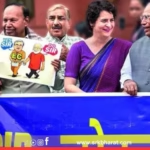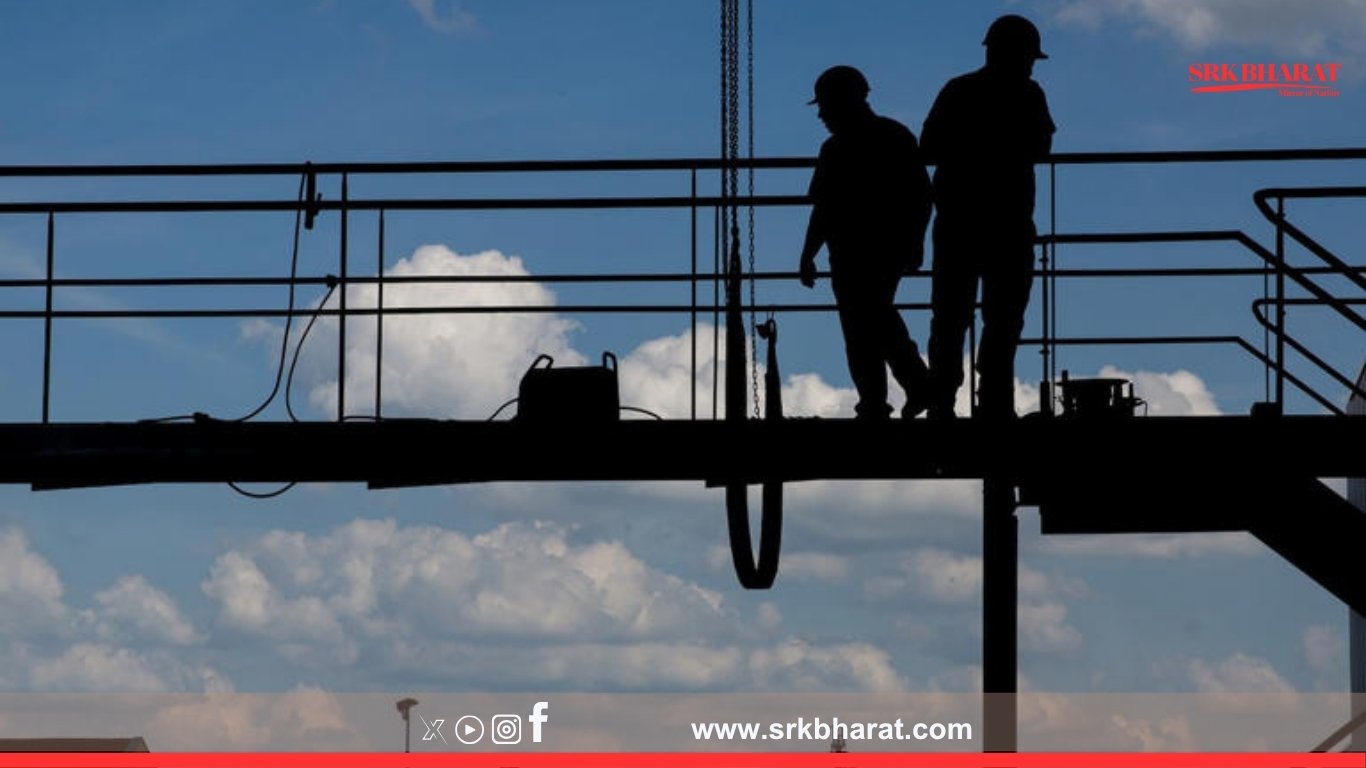Tensions have escalated between West Bengal and Odisha after Bengal Chief Secretary B P Gopalika raised serious concerns over the alleged “harassment” of Bengali migrant workers residing and working in Odisha. The issue was formally highlighted through an official communication sent to the Odisha government, urging immediate intervention to protect migrant rights and prevent inter-state social unrest.
What Sparked The Allegation?
According to senior Bengal administration officials, multiple complaints were received from migrant workers in Odisha’s Balasore, Ganjam, and Kendrapara districts over the past few weeks. The workers, mostly engaged in construction, fisheries, and informal sectors, have alleged:
- Verbal abuses and threats by local groups questioning their right to employment in Odisha.
- Random police verifications and intimidation without valid reasons.
- Denial of basic entitlements like ration cards and access to local health facilities despite residing for years.
- Discriminatory wage practices, paying them less than local workers for identical tasks.
Chief Secretary’s Official Statement
In his strongly worded letter, B P Gopalika stated:
“The state of West Bengal is deeply concerned over the harassment faced by Bengali migrant workers in Odisha. Such practices are unconstitutional and violate fundamental rights guaranteed under Article 19(1)(e) of free movement and residence across India.”
He further urged the Odisha government to investigate incidents, ensure migrant safety, and sensitise local authorities to uphold constitutional unity and integrity.
Odisha Government’s Initial Response
Reacting to Bengal’s concerns, Odisha’s Labour Secretary Manoj Ahuja said:
“We have not received any formal complaints at the local level but are taking Bengal’s communication seriously. District Collectors have been directed to verify claims and take immediate remedial action wherever necessary.”
However, he also maintained that Odisha has historically welcomed migrant workers, including those from Bengal, Bihar, and Jharkhand, in sectors ranging from construction to marine exports.
Migrant Workers’ Voices
The migrant workers’ community in Odisha forms a crucial part of its informal economy. Workers in Paradip’s fisheries hub and Balasore’s construction sites reported:
- Rahul Maity (Migrant worker, Contai, WB):
“We work here for ₹400-₹500 daily. Recently some local groups threatened us, saying jobs belong to locals. Many of us are scared but we have no option.” - Papia Das (Domestic worker, Balasore):
“Police came to check our documents thrice in one month. We have Aadhar and voter ID but were told to leave if we don’t have Odisha ration card.”
Constitutional Context of Inter-State Migration
| Provision | Description |
|---|---|
| Article 19(1)(d) | Right to move freely throughout India |
| Article 19(1)(e) | Right to reside and settle in any part of India |
| Inter-State Migrant Workmen Act, 1979 | Protects rights, wages, and living conditions of migrants |
Experts say any act of targeted harassment violates the fundamental rights and labour welfare statutes, especially if workers are documented and employed legally.
Political Reactions
The issue has triggered political statements across both states:
- Trinamool Congress (TMC) MP Saugata Roy:
“This is the outcome of rising regionalism. Migrants build Odisha’s economy. Their harassment is unacceptable.” - Odisha BJP spokesperson Golak Mohapatra:
“Odisha treats all equally. Migrants must integrate respectfully and ensure they follow local administrative norms.”
Socio-Economic Impact of Bengali Migrants in Odisha
| Sector | Migrant Workforce Contribution |
|---|---|
| Fisheries & Marine Exports | ~35% of dock and processing workers in Paradip and Dhamra ports are Bengali migrants |
| Construction | 20-25% workforce, especially in Balasore, Cuttack, Bhubaneswar urban projects |
| Domestic Work & Small Trades | Substantial presence in Balasore, Kendrapara towns |
Economists note that migrant labour mobility fills skill and wage gaps in regional economies, boosts productivity, and supports national economic integration.
Rights Activists Demand Urgent Action
Labour rights activists have urged both states to:
- Conduct joint surveys to document migrant population, issues, and policy needs.
- Sensitise local administrations to treat migrants as equal citizens.
- Ensure inter-state coordination for social security portability like ration cards, health benefits, and pensions.
- Crack down on local intimidation groups to protect India’s federal integrity.
Expert Opinion
Prof. Tanima Roy, Sociologist (Jadavpur University):
“Regional hostility towards migrants is not new in India. Political leadership must send a clear message that any Indian has the right to work and live anywhere in India.”
Historical Context of Inter-State Migration Conflicts
| Year | State | Issue |
|---|---|---|
| 2008 | Maharashtra | Attacks on North Indian migrants in Mumbai and Nashik |
| 2012 | Karnataka | Exodus of North East migrants fearing attacks in Bangalore |
| 2017 | Gujarat | Violence against UP-Bihar migrants after local murder |
| 2025 | Odisha | Alleged harassment of Bengali migrants |
Experts caution that such incidents weaken India’s unity and economic interdependence if not addressed sensitively and swiftly.
Possible Solutions Suggested by Policy Think Tanks
- Portable Social Security: National ration card and Ayushman Bharat portability for migrants.
- Inter-State Labour Agreements: As done between Odisha and Andhra Pradesh for construction migrants.
- Anti-Discrimination Drives: Campaigns promoting inter-state harmony in workplaces and communities.
- Legal Aid Cells: Establishing migrant legal help desks in districts with large migrant populations.
Conclusion
The allegation of harassment against Bengali migrants in Odisha has exposed the fragile fault lines in India’s inter-state labour dynamics. As both Bengal and Odisha governments engage over this issue, ensuring migrant dignity and rights while maintaining inter-state harmony will remain the biggest test of constitutional federalism in the coming days.
Disclaimer: This news content is based on official statements, workers’ accounts, and expert views. Readers are advised to follow official updates for policy decisions and administrative actions.











